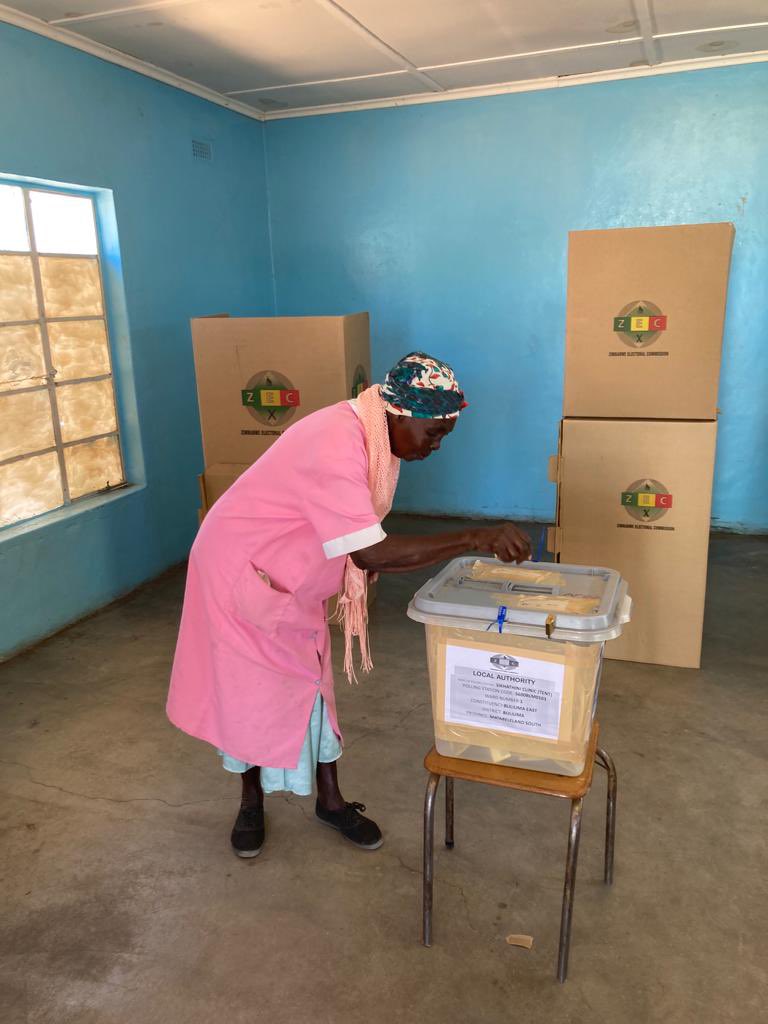By Nyasha Dube
Women in Zvishavane have called for the elimination of socioeconomic and geopolitical barriers which stand in their way of effective participation through out the electoral cycle.
This comes at a time the Zimbabwe Electoral Commission has embarked on the final voter registration blitz in anticipation of 2023 general elections.
The mobile registration exercise will run until the 21st of March at more than 4400 centre’s nationwide.
Electoral participation can take multiple forms for voters and candidates through active and passive suffrage. Lately, more women have been contesting as candidates, participating in voter registration and voter turnout as the trend towards gender equality in politics is gaining momentum.
However, some women still face challenges such as gender biased legal frameworks, lack of knowledge, lack of documentation, gender stereotypes, demoralizing and demotivating campaigns by political parties, among others.
For Kundai Muza, a young woman in informal trade, active civic participation is her way of adding her input to national development and addressing the challenges she faces as a woman.
“As women we really want to participate in political processes like voting and even contesting because we are the ones who know the challenges we need to be addressed. Men in office cannot speak on period poverty or the skyrocketing of sanitary wear prices because they cannot relate to that. Given all the knowledge and education we are willing to actively participate in the upcoming elections,” she said.
Another woman, Rejoice Chari echoed the same sentiments, and added that some women shun away participating because they lack knowledge and confidence.
“As women we feel excluded from electoral processes because these meetings happen when we are busy with house chores at home. By the time we get a chance to attend, we would already have been left behind. The political space is so brutal and as women we end up being silenced because of lack of knowledge. Even if I wanted to contest as a candidate don’t know the requirements and already I don’t stand a chance,” Chari said.
Women’s political participation has always been limited due to cultural and societal beliefs that have relegated women to the burdenof unpaid care work. The perception that women ard not fit for leadership roles has led to a lack of representation of women in political positions.
However, awareness campaigns and gender-sensitive programs aimed at empowering women need to be intensified to change this narrative. Some organizations like ZESN, WALPE, WCOZ among others are already asking steps towards capacitating women with the knowledge they need to actively take part in elections.
Despite the progress made, challenges still exist that hinder women from becoming equal participants in the political arena. One of the biggest challenges is the financial barrier that women face in elections. Political campaigns require enormous sums of money, and women often have less access to resources compared to their male counterparts. This makes it difficult for women to compete with men in elections.
Another challenge is the persistence of traditional attitudes towards women’s leadership roles. Women who venture into politics are often met with resistance and are subjected to sexist remarks and discrimination. This is harmful to women’s confidence and discourages them from seeking leadership positions.
The Zimbabwean government has also taken steps to promote women’s participation by implementing gender quotas in political parties. This has ensured that a minimum percentage of women are included in party candidate lists. Additionally, the government has created an enabling environment for women’s political participation by providing a legal framework that protects women’s rights.

